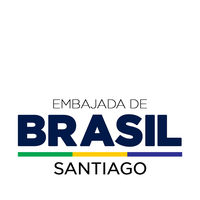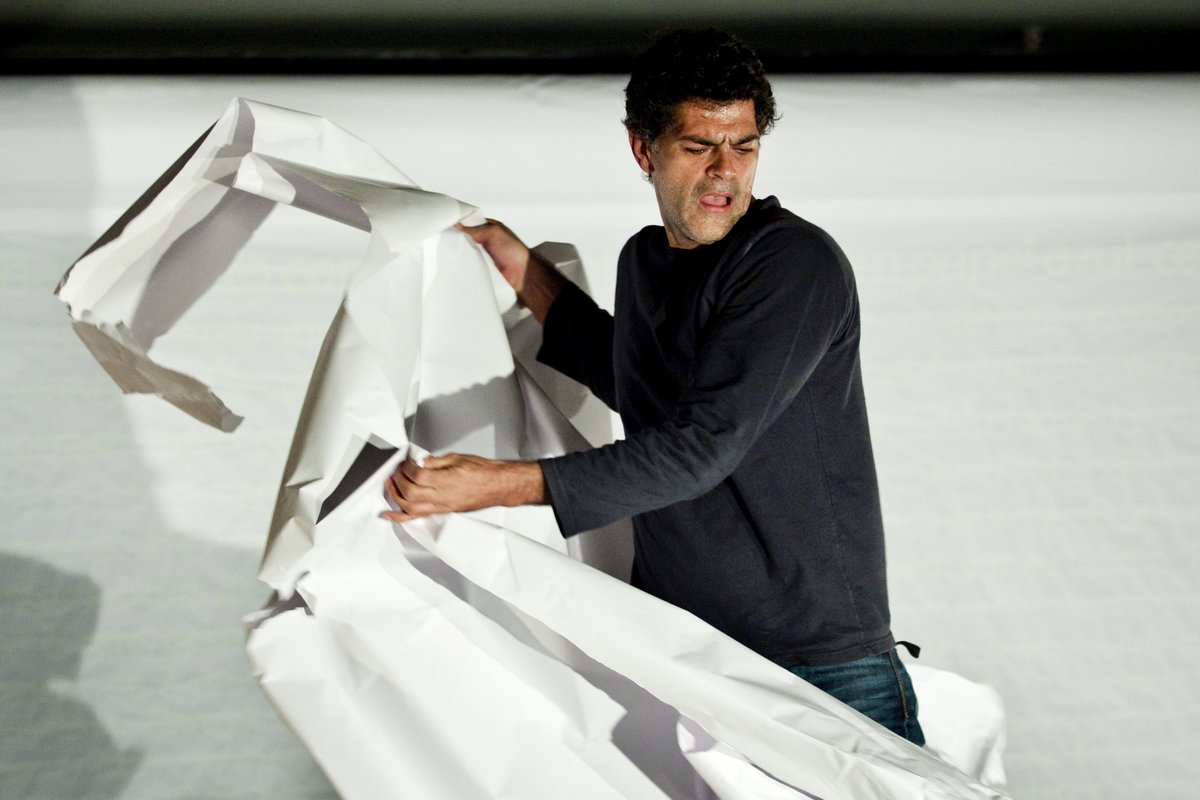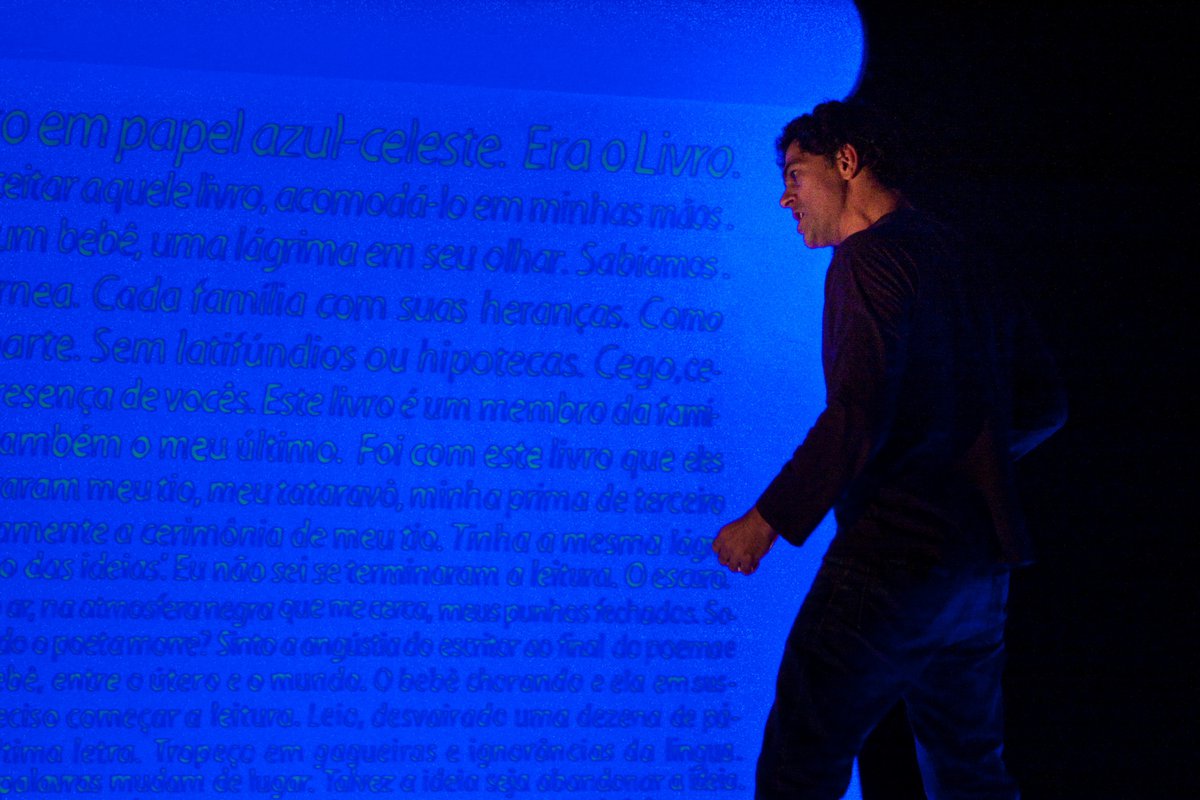Theatre
Written by: Newton Moreno | Directed by: Christiane Jatahy | Performer: Eduardo Moscovis | Soundtrack: Rodrigo Marçal | Staging: Christiane Jatahy and Marcelo Lipiani | Lighting: Paulo César Medeiros | Corporal director: Dani Lima | Photography: Paula Kossatz | Lighting and sound operator: Leandro Barreto | Production director and tour manager: Henrique Mariano and Claudia Marques | Produced by: Eduardo Moscovis Producciones Gregas.
Christiane Jatahy
Director
Wonderful theater
A writer, theater director and filmmaker, her plays cross over the limits between reality and fiction, blending installations with documentary video, performance and live cinema. La falta que nos mueve, for example, was filmed on three cameras over 13 continuous hours and shown on three screens simultaneously in Rio de Janeiro, Lisbon and Paris. She has reinterpreted plays by Strindberg (Julia, 2012), Chekhov (¿Y si ellas fueran a Moscú?, 2014) and Shakespeare (El bosque que camina, 2016). In 2018, she began developing the diptych Our Odyssey, based on Homer’s piece, whose second part, El ahora que tarda (which was performed at Santiago a Mil in 2020) was filmed in Palestine, the Lebanon, South Africa, Greece and the Amazon, mixing Greek fiction with real stories about refugee artists. She’s currently an associated artist at the Odeon European Theater, the CentQuatre in Paris, the Wallonie National Theater in Brussels, the Comedy of Geneva and the Zurich Schauspielhaus.
“A monologue that reflects on the times we’re living in, on abrupt interruptions and inevitable transformations”.
— In spite of its lack of elements, Christiane Jatahy’s staging of Newton Moreno’s text combines the performing and cinematographic arts, projecting texts onto a large roll of paper behind the person giving the monologue. One of her simplest theater pieces, it’s also the one with the best results.
—Its star, Eduardo Moscovis, acts out the four stages of someone who loses their sight: denial, rebellion, depression and acceptance. To get a better understanding of the process, he visited the Benjamin Constant Institute in Rio. “There’s a house you go into blindfolded, where you learn to carry out everyday tasks without anyone’s help”, he says. He also read Ensayo sobre la ceguera by José de Saramago and visited shows by blind artists.
—Newton Moreno, who wrote the piece, is currently one of Brazil’s most award-winning authors. His work is focused on representing the impact that homosexual love stories have on society. His research into the world of homoeroticism and body art using poetical language and his take on the risks involved with love have set him up as one of the most expressive voices of his generation.
Hypermedia and the intermediate stage: This refers to the convergence or use of different kinds of technology in the performing arts. Marta Isaacsson understands it as an intermediate stage between actors and technology. According to Beatrice Picon-Vallin, a role model for the use of technology in the dramatic arts, the actor’s presence on stage is no more than a minimum cell that defines their essence, and actors can be linked to other performing arts when they artistically appropriate technology as a means of expression. The presence of hypermedia on the intermediary stage exists, for example, when different technological tools are used in the creative process.
—Listen to the Brazilian director’s masterclass, held as part of the last version of Santiago a Mil.
—Take a look at Christiane Jatahy’s Vimeo channel with teasers and interviews about her work.
On Instagram, @chrisjatahy
On Twitter, @chrisjatahy
COLABORA

El libro (O Livro)
By Christiane Jatahy
- Brazil
- Portuguese with Spanish subtitles
- 45 minutes
- + 12 years
A man can lose his sight and still be a man. Ten years after its premiere and in a critique of the current state of Brazilian society, this play suggests that a country that has gone blind, however, can no longer be a country.
A man gets a book and the news that he’s going blind. In hours, minutes and seconds, he loses his sight right in front of our eyes. Premiered in 2010, this is the beginning of this play, which talks about the loss of physical sight, light and dark, seeing and not seeing, reading and being blinded or, rather, being too blind to see. It’s also about finding yourself and the need for individual transformation.
This version of El libro, coming out ten years after its premiere, associates blindness with the political and social events currently happening in Brazil. This blindness seems to be both collective and capable of sinking a country. It’s a visible kind of blindness.
El libro (O Livro)
By Christiane Jatahy
- Brazil
- Portuguese with Spanish subtitles
- 45 minutes
- + 12 years
A man can lose his sight and still be a man. Ten years after its premiere and in a critique of the current state of Brazilian society, this play suggests that a country that has gone blind, however, can no longer be a country.
A man gets a book and the news that he’s going blind. In hours, minutes and seconds, he loses his sight right in front of our eyes. Premiered in 2010, this is the beginning of this play, which talks about the loss of physical sight, light and dark, seeing and not seeing, reading and being blinded or, rather, being too blind to see. It’s also about finding yourself and the need for individual transformation.
This version of El libro, coming out ten years after its premiere, associates blindness with the political and social events currently happening in Brazil. This blindness seems to be both collective and capable of sinking a country. It’s a visible kind of blindness.
Written by: Newton Moreno | Directed by: Christiane Jatahy | Performer: Eduardo Moscovis | Soundtrack: Rodrigo Marçal | Staging: Christiane Jatahy and Marcelo Lipiani | Lighting: Paulo César Medeiros | Corporal director: Dani Lima | Photography: Paula Kossatz | Lighting and sound operator: Leandro Barreto | Production director and tour manager: Henrique Mariano and Claudia Marques | Produced by: Eduardo Moscovis Producciones Gregas.
Christiane Jatahy
Director
Wonderful theater
A writer, theater director and filmmaker, her plays cross over the limits between reality and fiction, blending installations with documentary video, performance and live cinema. La falta que nos mueve, for example, was filmed on three cameras over 13 continuous hours and shown on three screens simultaneously in Rio de Janeiro, Lisbon and Paris. She has reinterpreted plays by Strindberg (Julia, 2012), Chekhov (¿Y si ellas fueran a Moscú?, 2014) and Shakespeare (El bosque que camina, 2016). In 2018, she began developing the diptych Our Odyssey, based on Homer’s piece, whose second part, El ahora que tarda (which was performed at Santiago a Mil in 2020) was filmed in Palestine, the Lebanon, South Africa, Greece and the Amazon, mixing Greek fiction with real stories about refugee artists. She’s currently an associated artist at the Odeon European Theater, the CentQuatre in Paris, the Wallonie National Theater in Brussels, the Comedy of Geneva and the Zurich Schauspielhaus.
“A monologue that reflects on the times we’re living in, on abrupt interruptions and inevitable transformations”.
— In spite of its lack of elements, Christiane Jatahy’s staging of Newton Moreno’s text combines the performing and cinematographic arts, projecting texts onto a large roll of paper behind the person giving the monologue. One of her simplest theater pieces, it’s also the one with the best results.
—Its star, Eduardo Moscovis, acts out the four stages of someone who loses their sight: denial, rebellion, depression and acceptance. To get a better understanding of the process, he visited the Benjamin Constant Institute in Rio. “There’s a house you go into blindfolded, where you learn to carry out everyday tasks without anyone’s help”, he says. He also read Ensayo sobre la ceguera by José de Saramago and visited shows by blind artists.
—Newton Moreno, who wrote the piece, is currently one of Brazil’s most award-winning authors. His work is focused on representing the impact that homosexual love stories have on society. His research into the world of homoeroticism and body art using poetical language and his take on the risks involved with love have set him up as one of the most expressive voices of his generation.
Hypermedia and the intermediate stage: This refers to the convergence or use of different kinds of technology in the performing arts. Marta Isaacsson understands it as an intermediate stage between actors and technology. According to Beatrice Picon-Vallin, a role model for the use of technology in the dramatic arts, the actor’s presence on stage is no more than a minimum cell that defines their essence, and actors can be linked to other performing arts when they artistically appropriate technology as a means of expression. The presence of hypermedia on the intermediary stage exists, for example, when different technological tools are used in the creative process.
—Listen to the Brazilian director’s masterclass, held as part of the last version of Santiago a Mil.
—Take a look at Christiane Jatahy’s Vimeo channel with teasers and interviews about her work.
On Instagram, @chrisjatahy
On Twitter, @chrisjatahy
COLABORA


